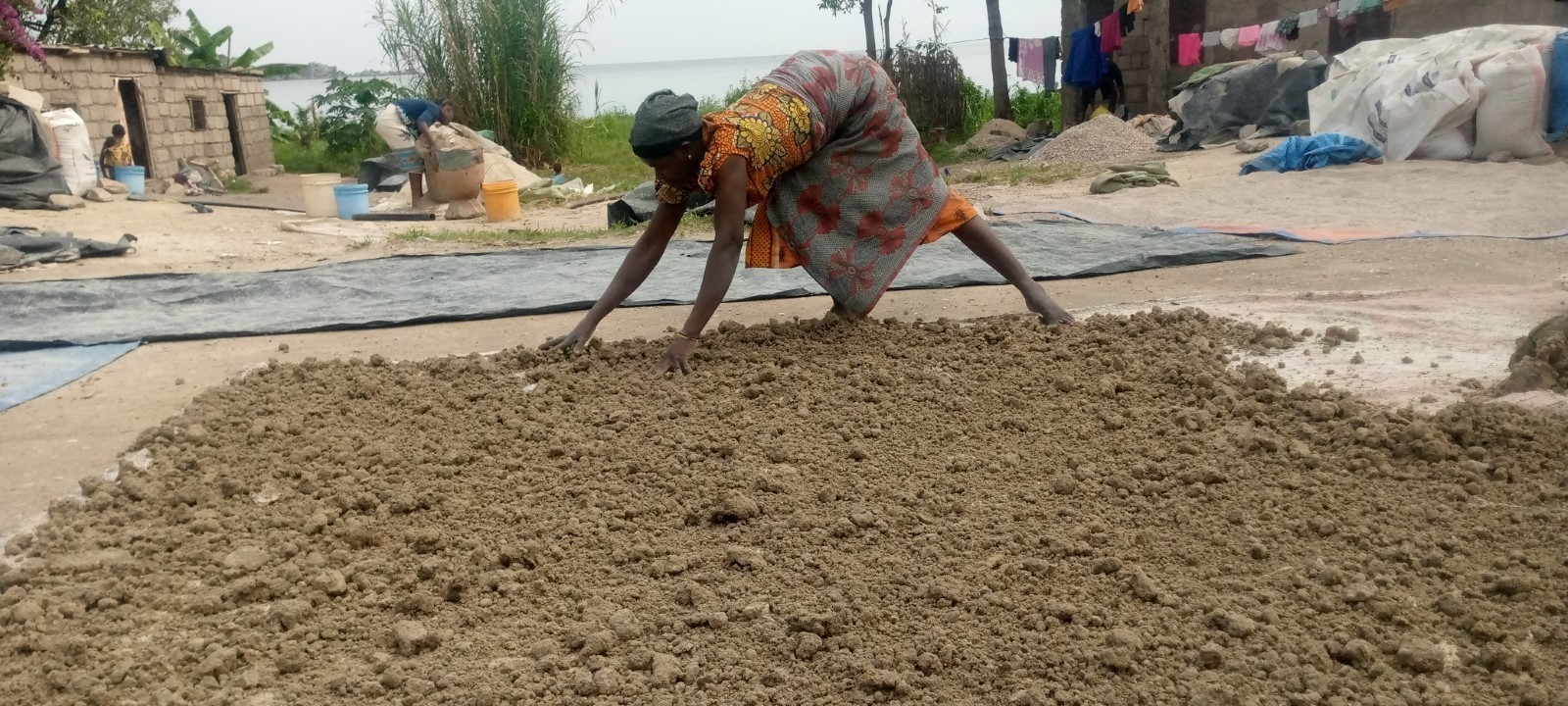Groundbreaking Workshop on AI and Technology-Facilitated Gender-Based Violence at AWiM24
Trending
Sunday June 1, 2025
Trending

It is early morning in Tanzania’s lakeside city of Mwanza and the sun is shining brightly. Some few metres away, `the buzzing of the mill can be heard. This is the Ilemela District of Mwanza where about 19 women have set up a small startup where they process natural resources harvested from Lake Victoria.
The startup founder Juliana Mwisha,48, says it is an all-women team except for one man who they involve in helping them get natural resources. They pick snail shells along the lake shore and grind it into powder which is later used as livestock feeds.
Despite the environmental issues affecting Lake Victoria, these women are determined to change their livelihoods, empower themselves and come up with an initiative to assist their community which is dependent on the world’s second freshwater lake. The community around the lake depend on it for agriculture, fishing and domestic use. Presently, the lake is facing biodiversity loss, pollution, and natural resource depletion among other issues.
“I always wake up earlier in the morning I came here and starting grinding ordered products, “Elizabeth Shibula, a mother of five told AWiM News, adding that this startup has helped improve her life and that of her family.
According to the World Bank, community-driven projects that support environment-friendly livelihoods would reduce pressure on Lake Victoria. This means all environmental interventions should be underpinned by sustainable growth and poverty reduction.
Leticia Nahusha who is a mother of four says her children can continue with their studies courtesy of this startup.
“Most customers came from neighbouring countries such as Uganda and Kenya while the rest are local,” she said.
“Every day our commodities are sold out on time because there is a ready market. My life has completely changed and improved because the raw materials we use here are environmentally friendly.”
The feed we make is used to feed poultry and fish,” she says.

Editha Makwaya, 39, is a widow and mother of three, she explained how small-scale industry has benefited her family.
“I couldn’t know if my house could change for the better and my children could finish their studies for sure I am so grateful for this wonderful change,” she told AWiM News.
On the other side, she encouraged the government to provide loans and grants so that they can purchase better machinery for manufacturing goods, which would help them safeguard and protect their products.
Protecting and managing natural resources is based on economic and social development and human activities are having an increasing impact on the ecosystems. This also ties with the element of the African Green Stimulus Programme on harnessing the potential for improving the productivity of the oceans to create jobs, strengthen food and nutritional security, wealth creation opportunities and environmental sustainability towards sustainable blue economy development. It also ties with the element of enhancing climate action which calls for investment in transformative projects.
Elite Paul, is a newcomer who has been here for two months and comes from a small-scale industry background.
“I simply saw women’s here and decided to visit and see what they do here and I am happy I joined them,” she said.
The work of grinding snails in the mill continued to ensure that the flour came out smooth.
“Since its inception, I have worked and cooperated with my fellow women to ensure that everyone achieves the goal and meets the basic needs of her family. Raw materials from Lake Victoria are available but sometimes complicated to the factory due to climatic change,” Juliana said.
“We benefited much but there are different challenging issues. “
She called on the government to provide low-interest loans so that they purchase technical machines for the massive production of goods.
According to the United Nations Report of November 06 .2013, women’s is critical to ensure they have better access to control natural resources
An economist from St Augustine University of Tanzania Dr Damas Mushi stated, “I appreciate the activities done by small women organisations and advise them to put more effort to meet their goals. This way, the government would support them to achieve the Sustainable Development Goals .”
“The Government Authority must put much effort into those people on small scale production by providing loans and grants as well as providing much education to attain development,’ ‘he said
Although the 1972 Stockholm Declaration laid out the fundamental principles for sustainable resources governance observing that nature makes human development possible The United Nations Environmental Programme (UNEP) found that the global average material demand per capital grew from7.4 tons in 1970 to12.2 tons in 2017 with significant adverse impact on the environment.
As these women of Ilemela District work hard to make a living from Lake Victoria, the water body is chocking with pollution to a point that it was highlighted by Kenyan youth at COP 26 in Glasgow. Hopefully, the three nations of Tanzania, Kenya and Uganda which share the lake will hopefully tackle the issue and let Lake Victoria breathe again since it is a source of livelihood to many women like Juliana.
We’re not gonna spam. We’ll try at least.

Copyright 2020. African Women In Media
Copyright 2020. African Women In Media
Recent Comments